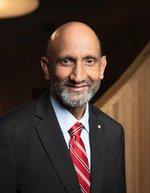
Professor Chennupati Jagadish AC is an Emeritus Professor of Physics and Electronic Materials Engineering in the Research School of Physics at the Australian National University. He has published more than 790 journal papers in semiconductor physics, materials science, optoelectronics and nanotechnology. Professor Jagadish is the Editor-in-Chief of Applied Physics Reviews, editor of 2 book series, and serves on editorial boards of 20 other journals. He is a fellow/foreign fellow of 16 science and/or engineering academies in Australia, the US, the UK, Europe, China and India. He has received many Australian and international awards, including a UNESCO medal for his contributions to the development of nanoscience and nanotechnologies, IUMRS Somiya Award, IEEE Nanotechnology Pioneer Award, Lyle Medal, Boas Medal, Beattie Steel Medal and Pravasi Bharatiya Samman award from the President of India in 2023. He has been an Australian Research Council (ARC) Federation Fellow and an Australian Laureate Fellow. Professor Jagadish is a Fellow of the Royal Society, and has received honorary doctorates from Surrey and Nottingham Trent universities. He was elected a Fellow of the Australian Academy of Science in 2005 and became President of the Academy in 2022.
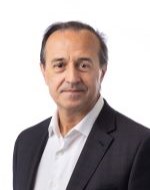
Professor Ivan Marusic is a Redmond Barry Distinguished Professor and Pro Vice-Chancellor (Research Infrastructure) at the University of Melbourne. His research is in the field of fluid mechanics, with emphasis on turbulent flows. After completing his degrees and postdoctoral training in Australia, he spent nine years in the US, where he was awarded an NSF Career Award and Packard Fellowship in Science and Engineering. He returned to Australia in 2007 as an Australian Research Council (ARC) Federation Fellow and was later awarded an (ARC) Laureate Fellowship (2012–17). He is a recipient of the Stanley Corrsin Award from the American Physical Society and is a Fellow of the Royal Society, American Physical Society, Australasian Fluid Mechanics Society and Australian Academy of Technological Sciences and Engineering. Professor Marusic was elected a Fellow of the Australian Academy of Science in 2014.
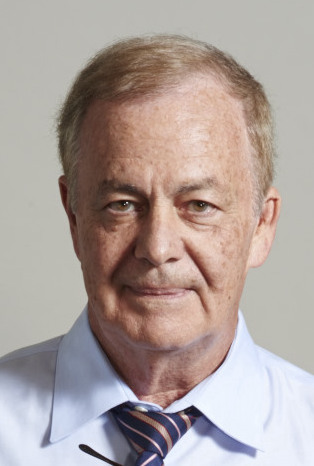
Professor Robert M. Graham received his medical training and doctoral degree from the University of New South Wales, where he is the Des Renford Professor of Medicine. After 17 years in the US, he returned to Australia as the inaugural Executive Director, Victor Chang Cardiac Research Institute from 1994 to 2020. He continues there as head of the Molecular Cardiology and Biophysics Division, as well as maintaining an active practice as a consultant physician in cardiorenal diseases. A Foundation Fellow, Australian Academy of Health and Medical Sciences, and Foreign Member, Royal Danish Academy of Sciences and Letters, his research is reported in over 290 peer-reviewed papers. He is a Fellow, American Heart Association; Life Member, Heart Foundation of Australia (NSW Division) and Royal Australasian College of Physicians; Fellow, National Heart Foundation of Australia, and Member, American Society for Clinical Investigation. Professor Graham was elected a Fellow of the Australian Academy of Science in 2002.
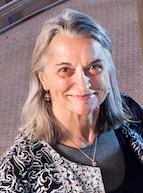
Distinguished Professor Emeritus Frances Separovic holds an honorary appointment in the School of Chemistry and was deputy director of the Bio21 Institute at the University of Melbourne. She is the past president of the Biophysical Society (USA) and president-elect of Division I (Physical and Biophysical Chemistry) of the International Union of Pure and Applied Chemistry (IUPAC), and previously served on the Council of the International Union of Pure and Applied Biophysics (IUPAB) and as Chair of the Academy’s National Committee for Chemistry. Professor Separovic was elected a Fellow of the Australian Academy of Science in 2012 for her ground-breaking research in biophysical chemistry and the use of nuclear magnetic resonance to study cell membranes.
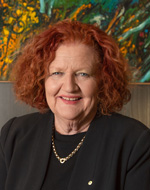
Professor Margaret Sheil has been Vice-Chancellor of QUT since February 2018 and is also Chair of the Queensland Museum Network, lead Vice Chancellor for Research for Universities Australia and has previously been a member of the Board and Deputy Chair of Universities Australia. She is currently Chair of the Queensland Vice Chancellors Committee (QVCC). Professor Sheil has previously been Provost at the University of Melbourne and Chief Executive Officer of the Australian Research Council, after academic and senior roles at the University of Wollongong. She has been a Director of the Australian Nuclear Science and Technology Organisation, a member of the Advisory Board of the Australian Space Agency, the Cooperative Research Centres Committee and the Prime Ministers Science, Engineering and Innovation Council. Professor Sheil was elected a Fellow of the Australian Academy of Science in 2021 and is also a Fellow of the Australian Academy of Technological Sciences and Engineering (ATSE), the Royal Australian Chemical Institute (RACI) and the Australian and New Zealand Society of Mass Spectrometry (FANZSMS). She holds a Bachelor of Science and a PhD in Physical Chemistry from the University of New South Wales. Professor Sheil has been a member of the Council of the Academy since 2024 and was then elected to the position of Secretary Science Policy for four years, commencing in May 2025.
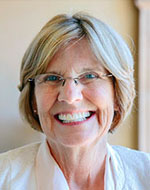
Professor Lyn Beazley is a distinguished neuroscientist and 2015 West Australian of the Year who has made a major contribution to the promotion and direction of science in Australia. As Chief Scientist for Western Australia (the first female to hold such a state role nationally) she championed gender diversity and science in the classroom through programs such as Microscopes in Schools, in addition to shaping science policy. Lyn is also well known for promoting science and technology in the media and she played a key role in bringing the internationally successful FameLab science communication competition to Australia. Professor Beazley was elected a Fellow of the Australian Academy of Science in 2019.
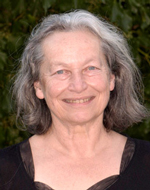
Professor Barbara F. Nowak is Professor Emeritus at the Institute for Marine and Antarctic Studies at the University of Tasmania and Honorary Professor at RMIT University. She did her PhD at Sydney University in Zoology, researching endosulfan residues in freshwater Australian fish and the effects of these residues on structure of fish organs. Her research interest focuses on various aspects of fish health, such as fish parasitology, fish immunology and fish pathology, including both wild and farmed fish. She is an expert on amoebic gill disease and tuna health. Professor Nowak published more than 300 papers. She is Associate Editor of Journal of Fish Diseases. She has received numerous awards for her research and supervision of PhD students. Prof Nowak was elected Fellow of Australian Society for Parasitology and Honorary Member of European Association of Fish Pathologists. She was elected a Fellow of the Australian Academy of Science in 2021.
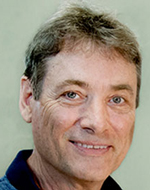
Professor Alan Andersen is Professor (Research Excellence and Impact) at Charles Darwin University. He was previously a Chief Research Scientist with CSIRO Land & Water, and Officer-in-Charge of CSIRO’s Tropical Ecosystems Research Centre in Darwin for twenty years. Professor Andersen’s primary research interests are in the global ecology of ant communities, where he integrates community ecology, historical and contemporary biogeography, and systematics to gain a predictive understanding of ant diversity, behavioural dominance and functional composition in relation to environmental stress and disturbance globally. He applies this understanding to the use of ants as bioindicators of ecological change. He also has broad research interests in the ecology of tropical savannas, and the ecology and management of fire. Professor Andersen was elected a Fellow of the Australian Academy of Science in 2018.
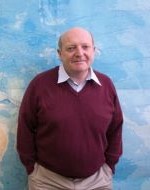
Emeritus Professor Patrick De Deckker is a graduate from Macquarie University with an MSc (Hons) in micropalaeontology, a PhD in zoology from Adelaide University and a DSc from the same institution awarded by the Department of Geology and Geophysics. After working on large Australian salt lakes and their records, he eventually returned to a second appointment at the Australian National University where he commenced working in marine geoscience to examine the Quaternary history of our oceans. This work was achieved in collaboration with a large number of students and postdocs associated with him, and he made sure all these people received training at sea on many of the cruises he led around Australia. Professor De Deckker has also investigated the geochemistry and microbiology of aeolian dust in Australia. He is now Emeritus Professor at the ANU. Originally, he started working on the taxonomy, ecology and shell chemistry of ostracods, a group of microscopic aquatic crustaceans. Professor De Deckker was elected a Fellow of the Australian Academy of Science in 2012
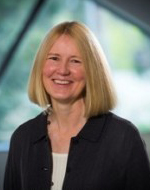
Professor Joanne Etheridge is an Australian Research Council Georgina Sweet Laureate Fellow in the School of Physics and Astronomy at Monash University, and the Science Director of the Monash Centre for Electron Microscopy which she established. She previously held appointments at the University of Cambridge in the Department of Materials Science and Metallurgy and Newnham College, including a Rosalind Franklin Research Fellowship and a Royal Society University Research Fellowship. Professor Etheridge conducts research in the theory and development of new electron scattering methods for determining the atomic and electronic structure of condensed matter. She also applies these methods to the study of structure-property relationships in functional materials with applications including solar cells, batteries and photonics. She has served on the Academy’s Sectional Committee for Physics and Astronomy and National Committees for Crystallography and for Materials Science and Engineering. Professor Etheridge was elected a Fellow of the Australian Academy of Science in 2019.
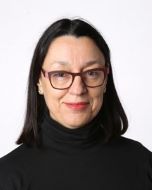
Professor Glenda Halliday is a career neuroscientist specialising in neurodegeneration. She has been a Fellow of the National Health and Medical Research Council (NHMRC) since 1990, appointed Professor of Medicine (2003) then of Neuroscience (2008), then NHMRC Senior Principal Research Fellow (2010) at the University of NSW, and is now an NHMRC leadership fellow at the University of Sydney until 2025. Professor Halliday started her research in neuroscience by studying the neurochemical dopamine and its systems in a variety of animal species, including humans. Her focus on understanding the brain and its workings in people has distinguished her neuroscience career. Her research has played a major role in shaping the international standards for neuropathological diagnosis of neurodegenerative diseases, particularly Lewy body diseases and frontotemporal dementias. Her research has also served as an evidence base for changes in the clinical diagnosis of these patients. Professor Halliday was elected a Fellow of the Australian Academy of Science in 2021.
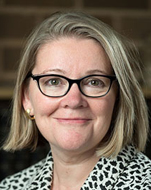
Professor Jennifer Martin is an internationally renowned protein crystallographer. She has made seminal discoveries in bacterial redox biochemistry, including revealing how the DsbA enzyme assembles bacterial ‘weapons’, and validating DsbA as a target for novel antibacterials that are now being developed. Through her role as a founding member of the Science and Gender Equity (SAGE) Steering Committee, Professor Martin helped implement the Athena SWAN pilot to address gender equity in science. She is also a strong public advocate for science with an inspirational and highly effective science communication record, extending now to the work of the Academy’s Council. Professor Martin was elected a Fellow of the Australian Academy of Science in 2017.
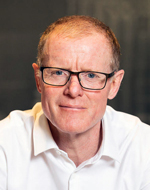
Professor Jamie Rossjohn is known for his contributions to understanding the molecular basis underpinning aspects of immunity, including T cell mediated responses to peptides, lipids and metabolites. Elected as a Fellow of the Royal Society and an Associate Member of EMBO in 2022, Professor Rossjohn has also championed inclusive scientific outreach. He has implemented programs to support disadvantaged communities, including employing people with disabilities through internships and scholarships, and advancing science accessibility for the blind and low-vision community. Professor Rossjohn is currently a Regional Co-Chair of the Vic branch of the Australian Academy of Science. He has served on multiple sectional committees for both the Academy of Science and the Australian Academy of Health and Medical Sciences (AAHMS), exemplifying his expertise and dedication to advancing science and community engagement. Professor Rossjohn was elected a Fellow of the Australian Academy of Science in 2014.
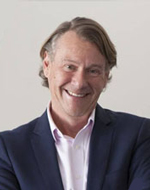
Professor Steve Simpson is inaugural Academic Director of the Charles Perkins Centre and Professor in the School of Life and Environmental Sciences at the University of Sydney. After graduating from the University of Queensland, he undertook his PhD at the University of London, then spent 22 years at Oxford before returning to Australia in 2005 as an ARC Federation Fellow, then ARC Laureate Fellow. Professor Simpson and David Raubenheimer developed an integrative modelling framework for nutrition (the Geometric Framework), which has been applied to a wide range of organisms, from slime moulds to humans, and problems, from aquaculture and conservation biology to the dietary causes of human obesity and ageing. He also pioneered understanding of swarming in locusts, with research spanning neurochemical events within the brains of individual locusts to continental-scale mass migration. He is Executive Director of Obesity Australia and has been prominent in the media, including presenting a four-part documentary series for ABC TV, ‘Great Southern Land’. Professor Simpson was awarded the Academy’s Macfarlane Burnet Medal in 2022. He is a Fellow of the Royal Society and was elected a Fellow of the Australian Academy of Science in 2007.
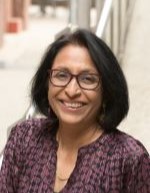
Professor Svetha Venkatesh is an Alfred Deakin Professor and Co-Director of Applied Artificial Intelligence Institute (A2I2) at Deakin University. She is a Fellow of the International Association of Pattern Recognition for contributions to formulation and extraction of semantics in multimedia data, a Fellow of the Australian Academy of Technological Sciences and Engineering and a Fellow of the Australian Academy of Science. In 2017, Professor Venkatesh was appointed an Australian Laureate Fellow, the highest individual award the Australian Research Council can bestow. Professor Venkatesh and her team have tackled a wide range of problems of social significance, including the critical areas of autism, security and aged care. The outcomes have impacted the community and evolved into publications, patents, tools and spin-off companies. This includes three full patents, one start-up company (icetana) and two significant products - TOBY Playpad and Virtual Observer. Professor Venkatesh was elected a Fellow of the Australian Academy of Science in 2021.
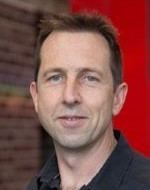
Professor Ian Wright is Chief Scientist at Hawkesbury Institute for the Environment (Western Sydney University), also Distinguished Professor in Plant Functional Ecology, and a Chief Investigator in the ARC Centre for Plant Success in Nature and Agriculture. His chief research focus is understanding variation in plant functional traits (the physical, chemical and physiological properties of plant organs and tissues), including by applying microeconomic concepts to understand trait evolution (for example the ‘leaf economics spectrum’ and photosynthetic ‘least-cost’ theory). An end goal is understanding how trait variation and concepts can be used for better predicting shifts in vegetation distribution and function under future climates. Professor Wright was elected a Fellow of the Australian Academy of Science in 2019.
© 2026 Australian Academy of Science